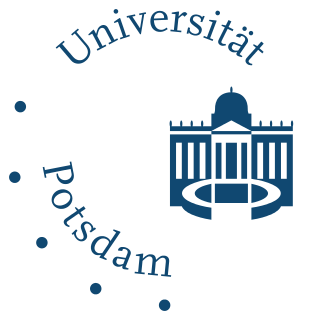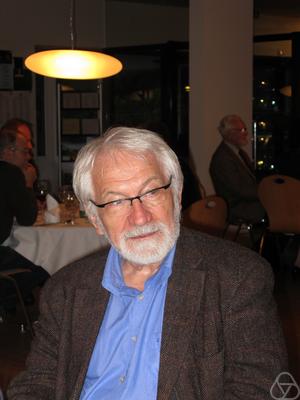
The Rhenish Friedrich Wilhelm University of Bonn is a public research university located in Bonn, North Rhine-Westphalia, Germany. It was founded in its present form as the Rhein-Universität on 18 October 1818 by Frederick William III, as the linear successor of the Kurkölnische Akademie Bonn which was founded in 1777. The University of Bonn offers many undergraduate and graduate programs in a range of subjects and has 544 professors. The University of Bonn is a member of the German U15 association of major research-intensive universities in Germany and has the title of "University of Excellence" under the German Universities Excellence Initiative; it is consistently ranked amongst the best German universities in the world rankings and is one of the most research intensive universities in Germany.

Heidelberg University, officially the Ruprecht Karl University of Heidelberg, is a public research university in Heidelberg, Baden-Württemberg, Germany. Founded in 1386 on instruction of Pope Urban VI, Heidelberg is Germany's oldest university and one of the world's oldest surviving universities; it was the third university established in the Holy Roman Empire after Vienna and Prague. Heidelberg is one of the most prestigious and highly ranked universities in Europe and the world. Heidelberg has been a coeducational institution since 1899. The university consists of twelve faculties and offers degree programmes at undergraduate, graduate and postdoctoral levels in some 100 disciplines. The language of instruction is usually German, while a considerable number of graduate degrees are offered in English as well as some in French.

The Ludwig Maximilian University of Munich is a public research university in Munich, Germany. Originally established in Ingolstadt in 1472 by Duke Ludwig IX of Bavaria-Landshut, it is Germany's sixth-oldest university in continuous operation.

The University of Freiburg, officially the Albert Ludwig University of Freiburg, is a public research university located in Freiburg im Breisgau, Baden-Württemberg, Germany. The university was founded in 1457 by the Habsburg dynasty as the second university in Austrian-Habsburg territory after the University of Vienna. Today, Freiburg is the fifth-oldest university in Germany, with a long tradition of teaching the humanities, social sciences and natural sciences and technology and enjoys a high academic reputation both nationally and internationally. The university is made up of 11 faculties and attracts students from across Germany as well as from over 120 other countries. Foreign students constitute about 18.2% of total student numbers.

Leipzig University, in Leipzig in Saxony, Germany, is one of the world's oldest universities and the second-oldest university in Germany. The university was founded on 2 December 1409 by Frederick I, Elector of Saxony and his brother William II, Margrave of Meissen, and originally comprised the four scholastic faculties. Since its inception, the university has engaged in teaching and research for over 600 years without interruption.
Academia Sinica, headquartered in Nangang, Taipei, is the national academy of the Republic of China (Taiwan). Founded in Nanking, the academy supports research activities in a wide variety of disciplines, ranging from mathematical and physical sciences, to life sciences, and to humanities and social sciences. As an educational institute, it provides PhD training and scholarship through its English-language Taiwan International Graduate Program in biology, agriculture, chemistry, physics, informatics, and earth and environmental sciences.

University of Erlangen–Nuremberg is a public research university in the cities of Erlangen and Nuremberg in Bavaria, Germany. The name Friedrich–Alexander comes from the university's first founder Friedrich, Margrave of Brandenburg-Bayreuth, and its benefactor Alexander, Margrave of Brandenburg-Ansbach.

The University of Duisburg-Essen is a public research university in North Rhine-Westphalia, Germany. In the 2019 Times Higher Education World University Rankings, the university was awarded 194th place in the world. It was originally founded in 1654 and re-established on 1 January 2003, as a merger of the Gerhard Mercator University of Duisburg and the university of Essen. It is based in both the cities of Duisburg and Essen, and a part of University Alliance Metropolis Ruhr.

The University of Mannheim, abbreviated UMA, is a public research university in Mannheim, Baden-Württemberg, Germany. Founded in 1967, the university has its origins in the Palatine Academy of Sciences, which was established by Elector Carl Theodor at Mannheim Palace in 1763, as well as the Handelshochschule, which was founded in 1907. The university is regularly ranked as Germany's best business school as well as a leading institution in economics and social sciences.

The University of Potsdam is a public university in Potsdam, capital of the state of Brandenburg, Germany. It is mainly situated across three campuses in the city. Some faculty buildings are part of the New Palace of Sanssouci which is known for its UNESCO World Heritage status.

Ulm University is a public university in Ulm, Baden-Württemberg, Germany. The university was founded in 1967 and focuses on natural sciences, medicine, engineering sciences, mathematics, economics and computer science. With 9,891 students, it is one of the youngest public universities in Germany. The campus of the university is located north of the city on a hill called Oberer Eselsberg, while the university hospital has additional sites across the city.

University Hospital Heidelberg is a university hospital in Heidelberg, Germany and is with 1,991 beds one of the largest medical centers in the country. It is closely linked to Heidelberg University Medical School which was founded in 1388 and is thus the oldest within the Federal Republic of Germany.

The University of Flensburg is a university in the city of Flensburg, Germany. It was founded in 1994 and is the northernmost university in Germany. Although it has full university status and the right to award PhDs, Europa-Universität Flensburg mainly offers courses in education and other fields of the social sciences.

Matthias Werner Hentze is a German scientist. He is the director of the European Molecular Biology Laboratory (EMBL), co-director of the Molecular Medicine Partnership Unit between EMBL and Heidelberg University, and Professor of Molecular Medicine at Heidelberg University.
Britta Waldschmidt-Nelson is the professor of transatlantic history and culture at the University of Augsburg, Germany, and has been since October 2016. Prior to this, Britta Waldschmidt-Nelson was deputy director at the German Historical Institute, Washington, D.C., where her research interests included African American studies, transatlantic relations, and gender and American religious history (2011–2016). Born on 9 April 1965, Waldschmidt-Nelson received her PhD summa cum laude from the University of Munich in American history and culture in 1997, and worked there as a lecturer, assistant professor, and associate professor in the same field, before becoming a professor of American history and culture in 2013.

Willi Jäger is a German mathematician.

Roger Sidney Goody is an English biochemist who served as director at the Max Planck Institute for Molecular Physiology in Dortmund from 1993 until 2013. Since 2013 he is Emeritus Director of the institute.
Rainer Matthias Holm-Hadulla is a German professor of psychiatry, psychosomatic medicine, psychotherapy and psychoanalysis.
Rohini Kuner is an Indian-born German pharmacologist and director of the Institute of Pharmacology at Heidelberg University.
Catherine Elizabeth Rigby is a scholar in the interdisciplinary field of environmental humanities.















